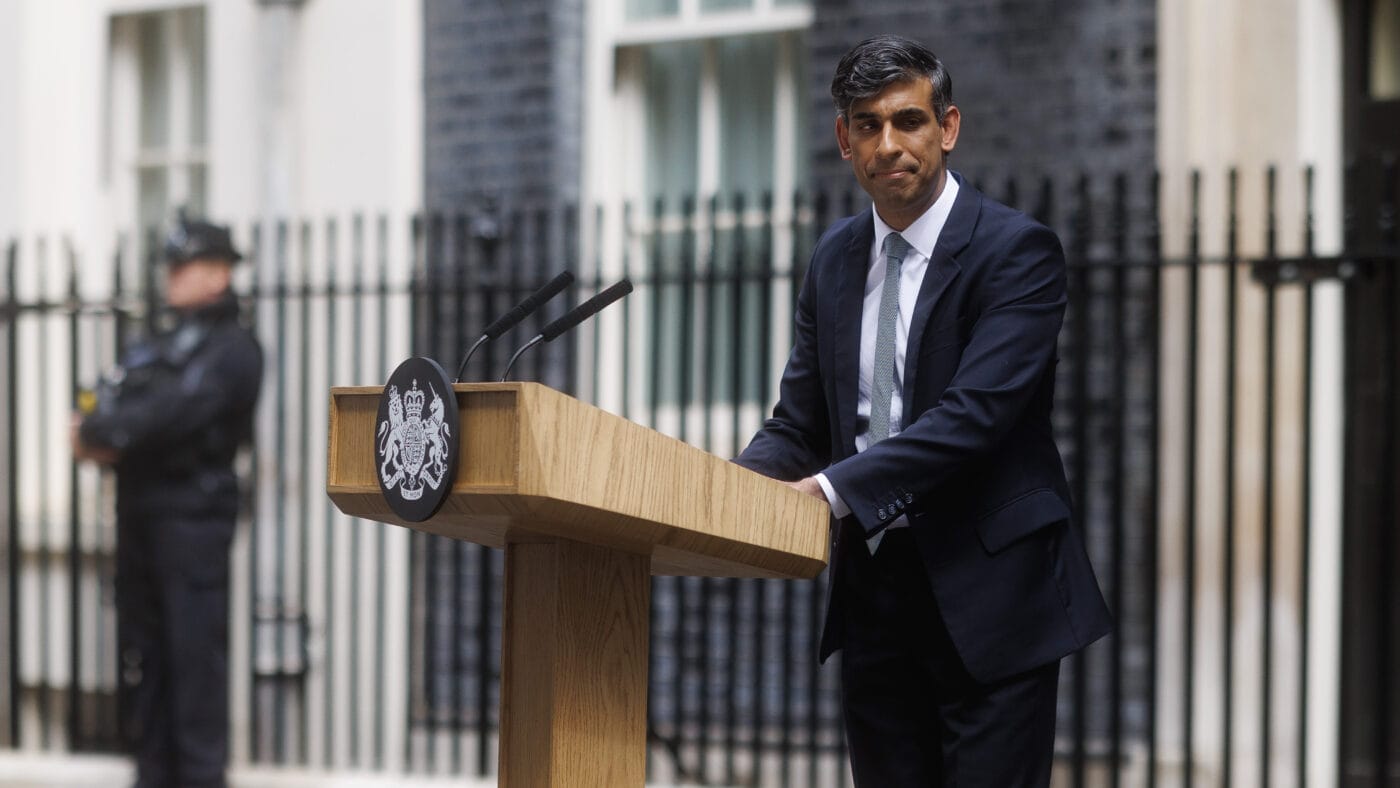No grave can hold their bodies down. Less than a week after their worst-ever defeat hundreds of Conservatives gathered in Westminster for the Popular Conservatism conference. The gathering was calm rather than angry or despairing. They weren’t in denial, but nor was the mood funereal.
Rather than recriminations over individuals, the focus was on restoring Party organisation and articulating clear beliefs and policies. No doubt Rishi Sunak’s decisions on election timing and leaving the D-Day commemorations added to Tory woes. There could also be criticisms of the personal qualities of Boris Johnson and Liz Truss. But rightly, most of those at the conference sensed the real problem was more fundamental. The Conservative Party had lost its way. As it no longer knew what it stood for, it could scarcely communicate an inspiring message to others.
That analysis carries the natural corollary of hope. That rather than the Party’s destiny being of inevitable decline, it has a straightforward remedy at hand – to go back to being conservative. ‘The Tories “like Doctor Who” can regenerate in new forms’, announced Lord Hannan. ‘Provided that, unlike Doctor Who, they do not sacrifice their traditional appeal in pursuit of wokeness’. Hear, hear! It was the Conservative Party that was rejected last week, not conservatism.
I was especially impressed by the resilience of Jacob Rees-Mogg, who was among the speakers. He had, of course, just been defeated in the North East Somerset and Hanham constituency. A brutal aspect of British democracy is that such sackings by the electorate are delivered live on television amidst the jeers and derision of your opponents.
After such an ordeal, did Rees-Mogg feel the need to hide away in a corner and have a rest? He did not. ‘Here we are at PopCon’, he announced. ‘I’m not sure we were either popular or that we were very conservative. So it’s slightly tricky to have a Conference under that name so soon’.
Among the core Conservative principles he wanted to see revived was ‘the rights of property’, adding ‘which we were trampling over under the Conservative Government which was deeply shameful’.
Rees-Mogg considered the priority in opposition to rebuild a mass membership:
When Gladstone won a large majority in 1880, we set up the Primrose League – it worked out how to make politics fun. Now, you may look at what they thought was fun in 1880 and think that may still be fun in the Rees-Mogg household but probably not in too many other households up and down the country. But they gave each other medals and they gave each other titles and all sorts of things. Within ten years they had over a million members and became a campaigning force in getting people to register to vote. They peaked at two million members.
Lord Frost also spoke with candour declaring:
We need to keep on saying that conservatism is the best philosophy, it’s one that makes people freer and richer wherever it’s tried, it’s one to which much of the rest of the world is turning once again, but one that we lost sight of it in a misguided attempt to modernise, drift left, and be all things to all men. We turned conservatism into a publicly funded support scheme for pensioners and the asset-rich in Southern England.
Understandably, there was no sense of deference at the Conference to the Party establishment – either in terms of Conservative MPs or CCHQ, the Party headquarters. Suella Braverman broadcast a message but the Conference was not a fan club for any particular putative leadership contender. But there was a strong view that the membership should not be denied a vote on the next leader. Furthermore, constituency associations should be given more autonomy – especially with regards to candidate selection.
One of the problems with the Conservatives ceasing to believe in anything is that it has attracted the wrong crowd. People come forward to be candidates simply because they think being an MP would be an interesting and prestigious job – with joining the Conservative Party merely a means to that end. A cohort of power-worshippers and control freaks pile in behind them as courtiers and apparatchiks.
Rather than ‘this happy breed of men’ and women, the Party membership was gradually being reduced to a sullen and cynical core. The patriotic freedom-lovers joining a shared endeavour were badly treated. Those willing to give up their time to be constituency association officers might have expected some practical assistance from CCHQ, but faced arrogance, bullying and obstruction.
David Campbell Bannerman, Chairman of the Conservative Democratic Organisation, spoke about how selections were delayed – making it easier for CCHQ to impose a choice. To coin a phrase, the membership needs to take back control.
But if the Conservative Party recovers its self-belief then it will motivate people to come forward to help for the right reasons – whether as members, donors, campaigners or candidates.
There were plenty of such people at the PopCon Conference – aggrieved at the direction their party had taken but with a forgiving nature should it fix its political satnav. As I left the gathering, I passed Rees-Mogg surrounded by a media scrum of photographers and cameramen. Doubtless, he was giving them his favoured soundbite of recent days, borrowed from Chitty Chitty Bang Bang: ‘From the ashes of disaster, grow the roses of success’.
Click here to subscribe to our daily briefing – the best pieces from CapX and across the web.
CapX depends on the generosity of its readers. If you value what we do, please consider making a donation.


